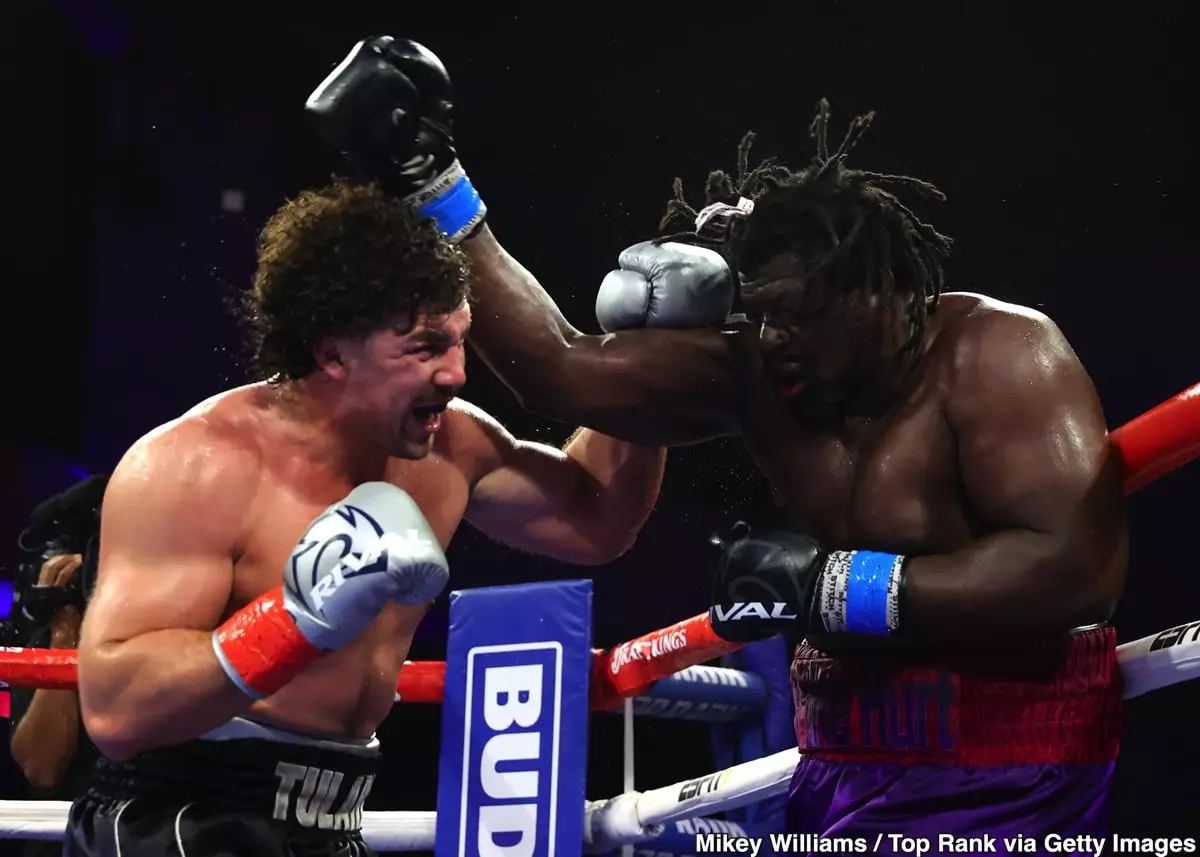The boxing world is buzzing with speculation about Deontay Wilder’s next move as the heavyweight contender prepares for what is reported to be a comeback fight scheduled for April. However, the lack of official confirmation raises questions about the legitimacy and competitiveness of a potential matchup against Curtis Harper. Harper claims to have signed a contract to face Wilder, but his historical performance raises concerns about whether this will be a challenging encounter or just a warm-up for Wilder.
Curtis Harper’s record paints a mixed picture. Currently holding a professional record of 18 wins and 11 losses, with 12 of those victories coming by knockout, Harper’s past performances suggest an athlete who struggles against higher-tier competition. His most notable appearance came in 2015 when he fought Chris Arreola, arguably putting up a respectable effort over eight rounds. Despite that commendable display, most of Harper’s bouts against elite fighters have resulted in losses, indicating he might not be the ideal contender to test Wilder’s skills.
Moreover, Harper gained some infamy for his controversial exit from the ring against Efe Ajagba, which he proclaimed was a protest against financial disputes. This incident not only tarnished his reputation but also left fans questioning his commitment to the sport. A fighter who has been stopped six times throughout his career—combined with a curious decision to quit mid-fight—casts doubt on his ability to pose a legitimate threat to Wilder should the fight materialize.
Wilder, a former WBC heavyweight champion, possesses a formidable record of 43 wins, four losses, and one draw, with 43 knockouts stunningly showcasing his punching power. However, since his knockout victory over Robert Helenius in October 2022, Wilder has not stepped into the ring. The anticipation surrounding his return is palpable, with fans eager to see how he fares after a hiatus from competitive action.
Should Wilder face Harper, many analysts predict that the bout may be overwhelmingly one-sided. Given Wilder’s devastating punching capability and Harper’s history of surrendering against powerful opponents, it raises the question of whether this matchup serves more as an exhibition than a competitive contest. Fans are eager for Wilder to regain his place among the top heavyweights, and a fight against an opponent of questionable caliber may not completely satisfy their hunger for high-stakes boxing.
The inclusion of Curtis Harper as an opponent for Wilder remains a contentious topic. While Harper’s confirmation of signing a contract might appear to signal progress, fans and critics alike are likely left feeling ambiguous about their expectations. Is this a stepping stone for Wilder to regain momentum, or merely a strategic matchup designed to ensure a safe return after a significant layoff?
Ultimately, the boxing community is left to speculate whether Harper can rise to the occasion or if this highly anticipated return fight could evolve into a mere showcase of Wilder’s power. As April approaches, fans will eagerly watch for any developments that may shape the future of heavyweight boxing and, more importantly, Deontay Wilder’s place within it.

